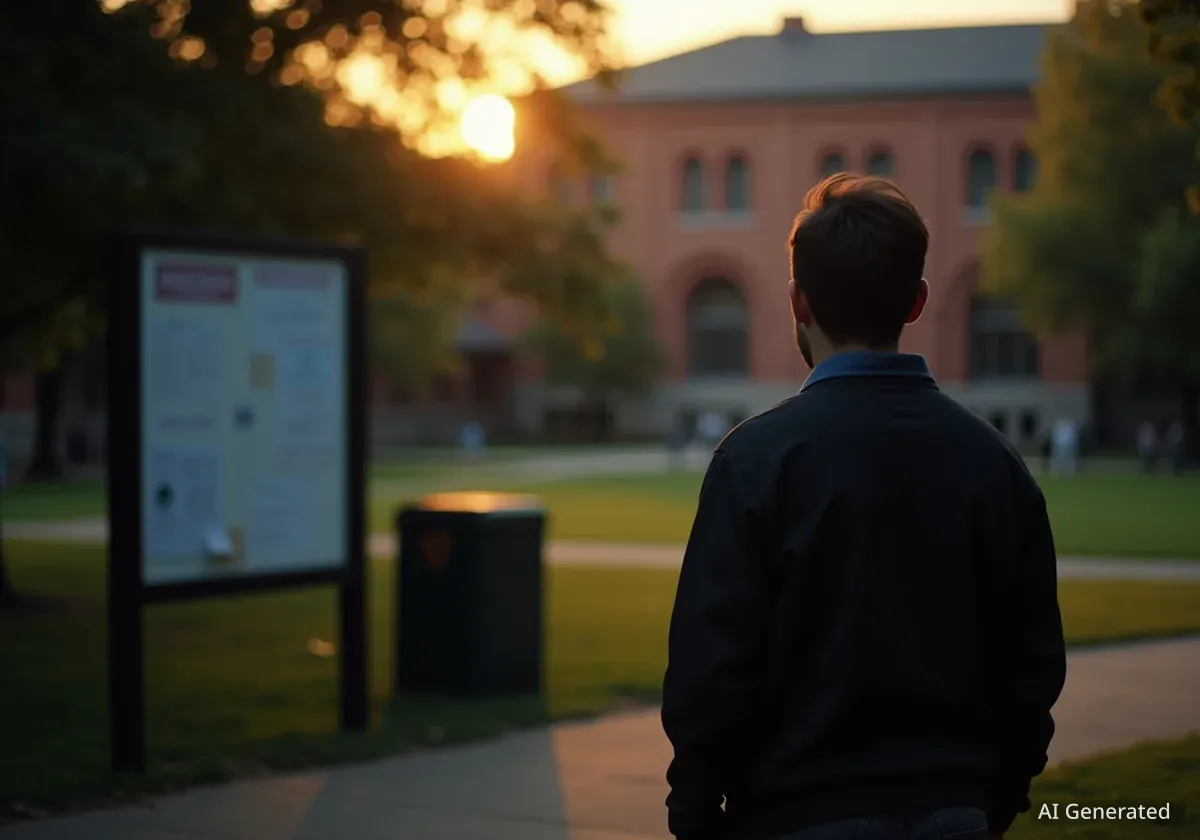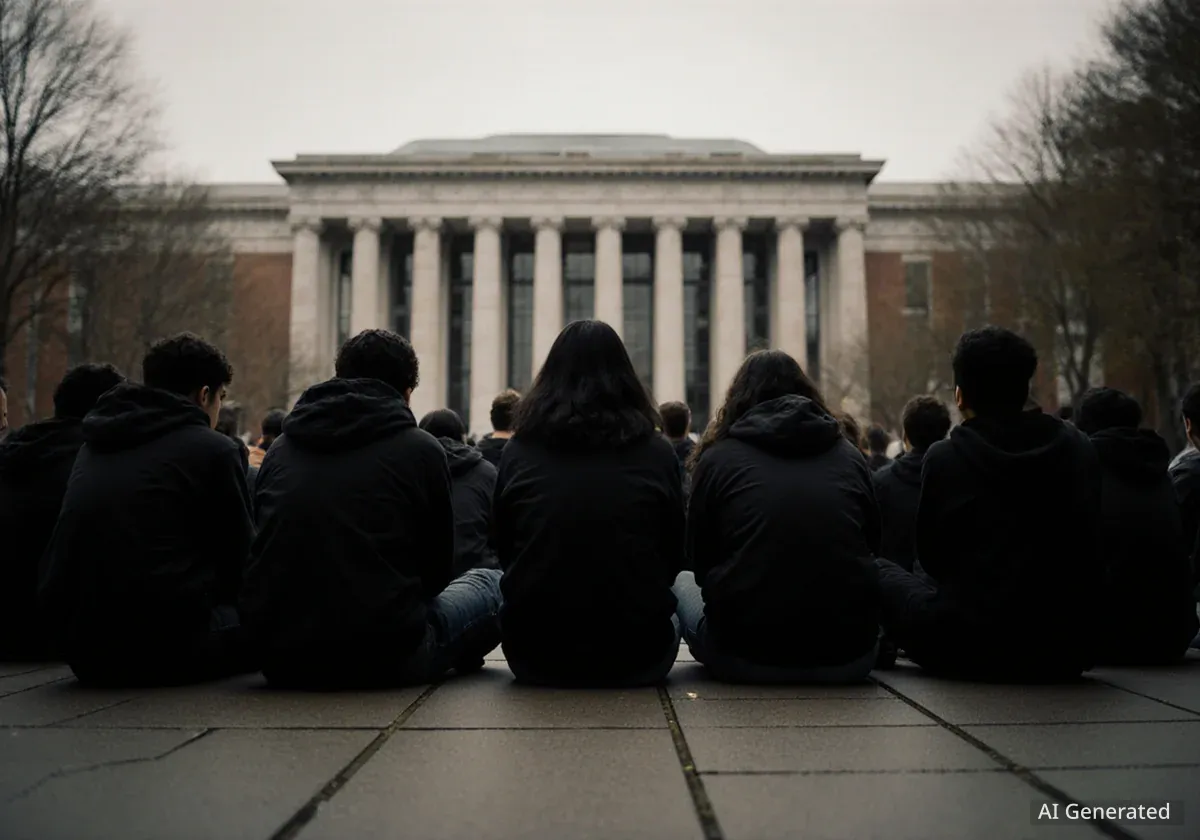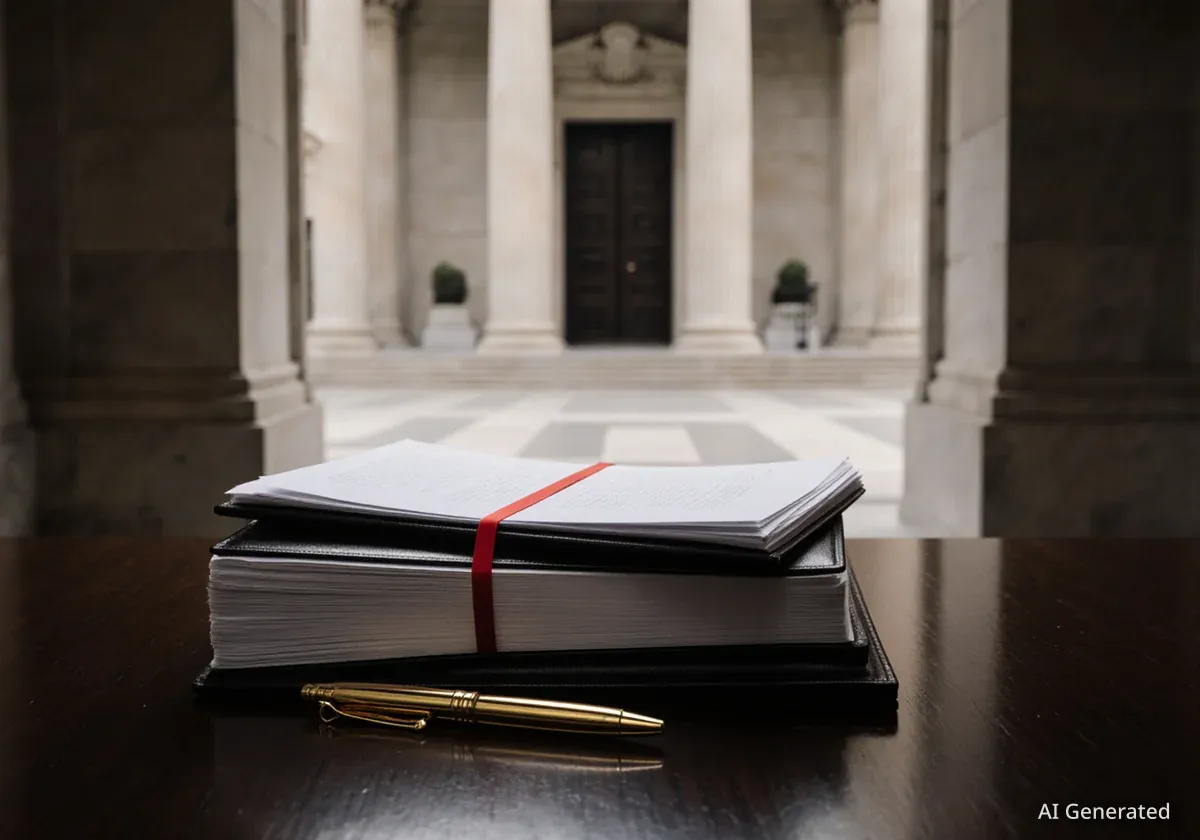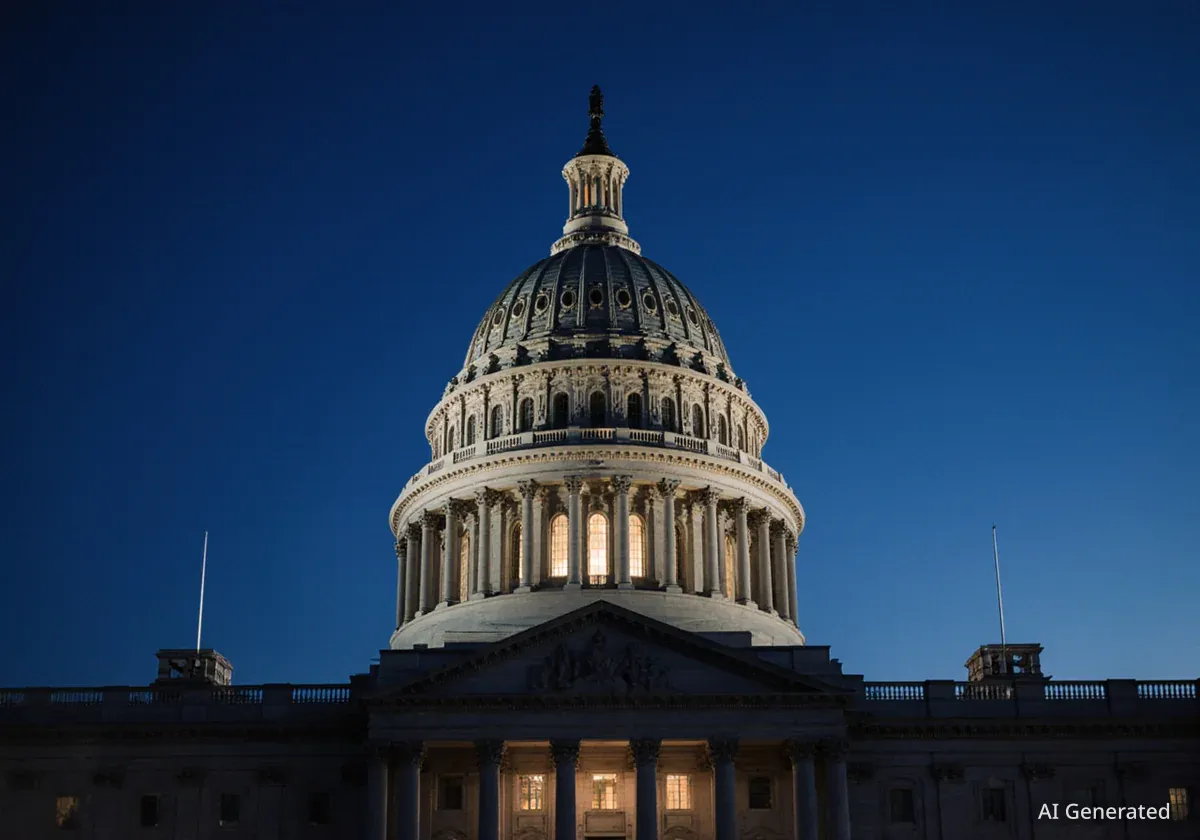The chairman of the University of Michigan's faculty senate, Derek Peterson, distributed a faculty-wide email criticizing the late political activist Charlie Kirk. In the message, Peterson asserted that Kirk was "no friend of academic freedom" and that his "demagoguery has endangered a great many people."
The email addressed the recent death of Kirk while also condemning his political activities, specifically highlighting a watchlist that targeted university professors, including several at the University of Michigan.
Key Takeaways
- Derek Peterson, University of Michigan's Faculty Senate Chair, criticized Charlie Kirk in an email to all faculty.
- Peterson claimed Kirk's actions, including a "Professor Watchlist," endangered many individuals.
- The email stated that 20 University of Michigan faculty members were on the list created by Kirk's organization, Turning Point USA.
- Despite his criticism, Peterson's email also stated that Kirk's death should cause sorrow and that violence has no place on campus.
- The incident is part of a broader national debate on free speech, political rhetoric, and violence following Kirk's death.
Content of the Faculty-Wide Communication
In his email, Professor Derek Peterson, who also serves as a professor of history and African studies, directly addressed the political work of Charlie Kirk. He pointed to the "Professor Watchlist," a project by Kirk's organization, Turning Point USA, which compiles a list of academics it accuses of promoting "anti-American values."
"In life, Kirk was no friend of academic freedom," Peterson wrote. He noted that the list included members of his own faculty. "Twenty members of the faculty are included on his 'Professor Watchlist,' which targets faculty who (in his partisan definition) 'promote anti-American values.'"
"His demagoguery has endangered a great many people," Peterson stated in the email.
However, the message also included a condemnation of violence. Peterson wrote that Kirk's death "must cause all of us sorrow," emphasizing that "violence has no place on a university campus" because it is the "enemy of civil discourse."
Follow-Up Statements and Clarifications
When contacted by the Washington Free Beacon, Peterson was asked if there was a conflict between his condemnation of the murder and his assertion that Kirk had endangered people, a statement some might interpret as a justification for violence. Peterson did not directly answer the question but expanded on his criticism of Kirk.
He revised the number of affected faculty members, stating, "Thirty members of the Michigan faculty are on the Professor Watchlist." This was an increase from the 20 he mentioned in his initial email.
The Professor Watchlist
Turning Point USA's Professor Watchlist is a publicly accessible database that lists academics who, according to the organization, "discriminate against conservative students and advance leftist propaganda in the classroom." The project has been a source of significant controversy since its launch, with critics arguing it leads to targeted harassment of educators.
Peterson elaborated on the impact of the list on his colleagues. "Many of them are Black. Being included on the late Mr. Kirk's site brought a flood of internet-born harassment, threats, and intimidation upon them," he explained. "His political strategies coarsened public discourse, encouraged name-calling, and made it possible for ill-intentioned people to find and intimidate well-meaning folks whose views diverged from their own."
Broader Context of Campus Reactions
Peterson's email is one of many reactions from the academic community following Kirk's death. Across the country, some educators have posted messages appearing to celebrate the event, suggesting the killing was justified.
- Patrick Freivald, a teacher in New York, posted a message on Facebook referring to Kirk as an "aspiring Goebbels" and ending with "Good riddance to bad garbage."
- An instructor at East Tennessee State University allegedly wrote, "This isn't a tragedy. It's a victory."
Suspect's Alleged Motive
The man charged with aggravated murder in Kirk's death, Tyler Robinson, reportedly told his roommate he had "had enough of [Kirk's] hatred." Investigators also obtained a text message from Robinson that read, "Some hate can't be negotiated out." Utah prosecutors are seeking the death penalty in the case.
The Debate Over Speech and Violence
The events have intensified a long-standing debate on college campuses and in the wider public sphere about the relationship between political speech and physical violence. Advocates for free expression argue that treating controversial speech as a form of violence creates a dangerous justification for actual physical attacks.
Greg Lukianoff, president of the Foundation for Individual Rights and Expression (FIRE), commented on this trend. "Accept the premise that rhetoric is a physical attack and you hand extremists a moral permission slip to answer speech with force," Lukianoff wrote in an article for the Free Press.
He stressed the importance of maintaining a clear distinction between words and actions. "We need to bury this trope," he concluded, referring to the idea that speech is equivalent to violence. The ongoing discussions at the University of Michigan and other institutions highlight the deep divisions over this issue in contemporary American society.





